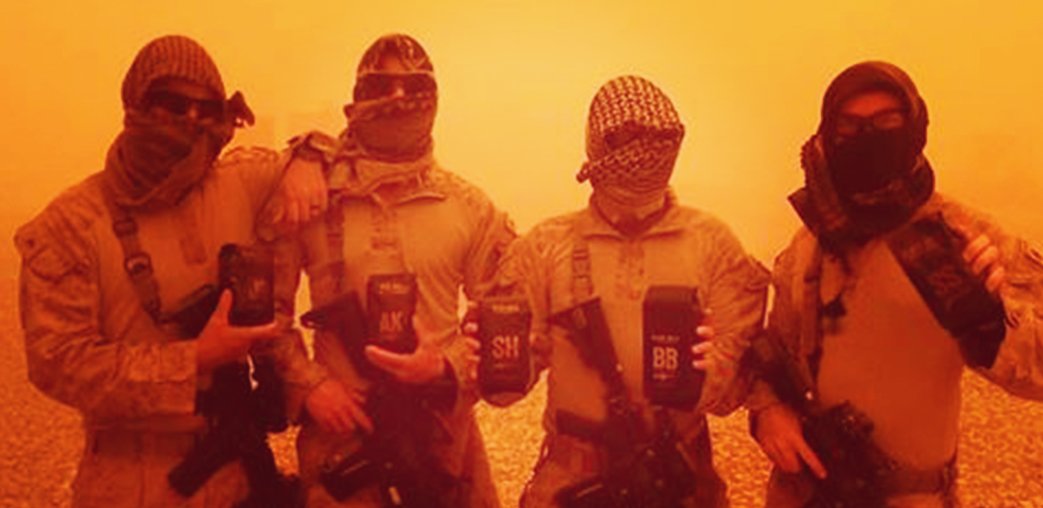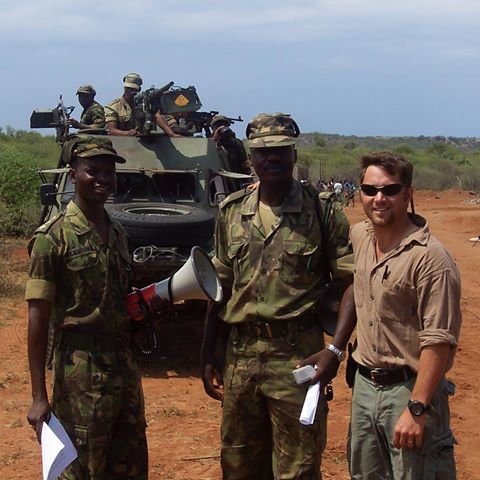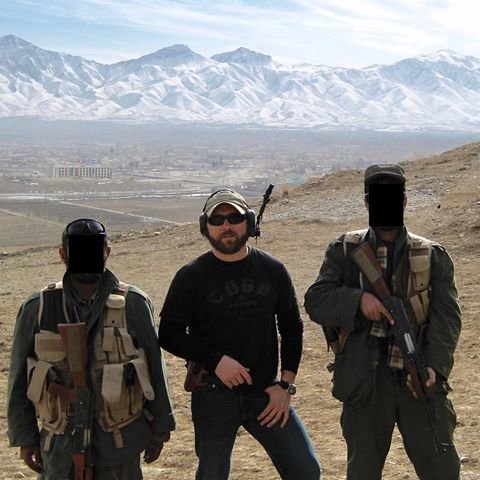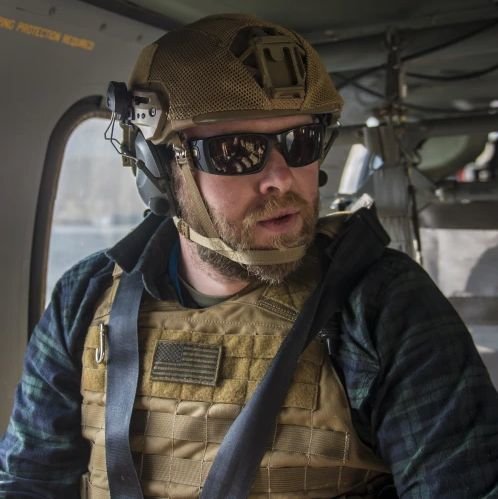How to Make Good Coffee in Bad Places, According to Evan Hafer

Making coffee isn’t strictly relegated to your kitchen or the local coffee shop. People around the world find ways to enjoy a hot brew in high-altitude mountains to the middle of the ocean, and everywhere in-between. A good cup of coffee can make inhospitable conditions more tolerable, but the quality in your cup often suffers without the trappings of your home coffee kit.
Evan Hafer, the CEO of Black Rifle Coffee Company, found a way to make great coffee in one of the most extreme environments on earth: war.
Hafer served as both a U.S. Army Special Forces non-commissioned officer (NCO) and a contractor for the CIA, with assignments that took him to combat zones around the world. Even during the invasion of Iraq in the spring of 2003, he found a way to grind and brew his daily dose of caffeine — without sacrificing quality.
Coffee or Die Magazine caught up with Hafer recently to find out about his battle-tested methods for making good coffee in bad places.
Take good coffee beans with you.
During the invasion of Iraq in 2003, Hafer took premium coffee with him, and his fellow Special Forces teammates often woke up to the sound of a coffee grinder on the back of their gun truck. “I think we were probably the only ODA to take whole bean, good coffee with us. In the mornings, we would always start the day by grinding fresh coffee,” Hafer said. He recommends finding single-origin, high-altitude beans — he prefers Panamanian or Colombian.
Roast your own beans.
By 2006, Hafer was deploying with the CIA but was surprised to find that the coffee options left a bit to be desired: “You’d think the agency, especially with their kind of gucci reputation, would have amazing coffee. But they didn’t.” So he started roasting in his garage and bringing a duffel bag’s worth of beans overseas with him for his 60-day deployments.

A french press is good, but pour over is better.
“I did the french press for a long time, until I had broken so many,” Hafer said. “I eventually found a double-walled, stainless steel one and went through quite a few of those because people would literally steal them, they were in such high demand.” These days, Hafer doesn’t leave home without a custom travel pour-over system that he invented that is much more compact than a french press and has simple, durable components.
Know the boiling point for the altitude you’ll be at.
You typically want your water to be about 200 degrees Fahrenheit before pouring it over the ground coffee, but deciphering water temperature might seem tricky if you don’t have a thermometer. “I know roughly what temperature water is going to boil at based on the elevation; it’s either going to boil faster or slower,” Hafer said. “You don’t have to put a thermometer in it because you’ll know exactly what the temperature is based on the boiling point.” When planning your next trip, go to omnicalculator.com to quickly find the boiling point for your intended elevation.

Get the right coffee-to-water ratio.
According to Hafer, you want approximately a 1:16 ratio of coffee to water. This roughly breaks down to 1 tablespoon of ground coffee for every one cup of coffee (8 ounces). “I know that by eye because I’ve been doing it for so many years. It’s what you do every day [at home] that will allow you to master making coffee in the field,” Hafer said. “All that skill translates to when you’re in shitty places.”
Don’t be intimidated by the process.
As much as the science and logistics of making a great cup of coffee might deter the average person from going through the effort in austere environments, Hafer emphasized that it’s all very doable — and will only take 10 minutes of your time. “At the end of the day, if you have a hand grinder or maybe you’ve pre-ground some coffee, you got an indestructible pour-over and a means to boil water, you’re gonna make a great cup of coffee.”

Marty Skovlund Jr. was the executive editor of Coffee or Die. As a journalist, Marty has covered the Standing Rock protest in North Dakota, embedded with American special operation forces in Afghanistan, and broken stories about the first females to make it through infantry training and Ranger selection. He has also published two books, appeared as a co-host on History Channel’s JFK Declassified, and produced multiple award-winning independent films.
BRCC and Bad Moon Print Press team up for an exclusive, limited-edition T-shirt design!
BRCC partners with Team Room Design for an exclusive T-shirt release!
Thirty Seconds Out has partnered with BRCC for an exclusive shirt design invoking the God of Winter.
Lucas O'Hara of Grizzly Forge has teamed up with BRCC for a badass, exclusive Shirt Club T-shirt design featuring his most popular knife and tiomahawk.
Coffee or Die sits down with one of the graphic designers behind Black Rifle Coffee's signature look and vibe.
Biden will award the Medal of Honor to a Vietnam War Army helicopter pilot who risked his life to save a reconnaissance team from almost certain death.
Ever wonder how much Jack Mandaville would f*ck sh*t up if he went back in time? The American Revolution didn't even see him coming.
A nearly 200-year-old West Point time capsule that at first appeared to yield little more than dust contains hidden treasure, the US Military Academy said.












